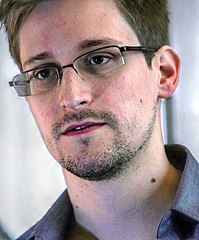On not celebrating Constitution Day this year, 2013
Sep 17, 2013 · 3 minute read · CommentsConstitutionConstitution DayCarnegie Mellon UniversityPittsburghDavid HarrisNSAEdward Snowden
For several years, I’ve made a habit of observing Constitution Day by attending the annual exhibit and lecture at CMU. Last year I reported on an interesting session about the very invention of Constitution Day.
This year, the program for the event held at the Posner Center at CMU read:
David Harris, distinguished faculty scholar and professor of law at the University of Pittsburgh School of Law, will deliver a keynote speech titled "How Will America Be Remembered? A Constitution Day Journey Into the Future" at approximately 3:30 p.m. Light refreshments will be served. An original copy of the Bill of Rights will be on display.
I ended up deciding not to attend today, for several reasons. One is that I have a lot of stuff to get done at work right now. But even if that weren’t the case, my heart was not into celebrating Constitution Day this year.
How will America be remembered?

Because the story is still far from over, I haven’t said much on my blog about the events that have been unfolding for some months now since Edward Snowden exposed information about the surveillance activities of the National Security Agency. He explained his actions as justified by the violation of the 4th and 5th Amendments to the Constitution:
The 4th and 5th Amendments to the Constitution of my country, Article 12 of the Universal Declaration of Human Rights, and numerous statutes and treaties forbid such systems of massive, pervasive surveillance. While the US Constitution marks these programs as illegal, my government argues that secret court rulings, which the world is not permitted to see, somehow legitimize an illegal affair. These rulings simply corrupt the most basic notion of justice -- that it must be seen to be done. The immoral cannot be made moral through the use of secret law.
When I do a Web search for “Edward Snowden” and “Constitution”, I mostly find pro-Snowden articles that affirm his point of view of the NSA programs as being unconstitutional. Here is one exception you may wish to read.
I find it interesting that much of the media coverage of Edward Snowden’s actions do not actually reference his claim of unconstitutionality, but focus on other matters, such as the nature of his education or possible ulterior motives for leaking, or whether his actions may prove harmful to national security or other interests. These may be interesting and important questions, but sidestep his primary claim and stated motive.
Too early to tell
I did not attend the David Harris, although it might have been interesting.
I think Snowden’s actions and their repercussions will add an extra twist to the age-old question of whether the Constitution is to be interpreted under “original intent” or as a “living document”, and even whether the Constitution should be abandoned, if interpretations either way simply come to be seen as purely political game-playing to justify “constitutional” as simply meaning “what I like”. The most interesting thing right now is that prominent voices on both the “left” and the “right” (the libertarian wing) have united in denouncing the activities of the NSA as unconstitutional.
This is not a political blog, and political theory is not my main area of interest or advocacy, but I thought it would be useful to make a few observations about current events for Constitution Day.